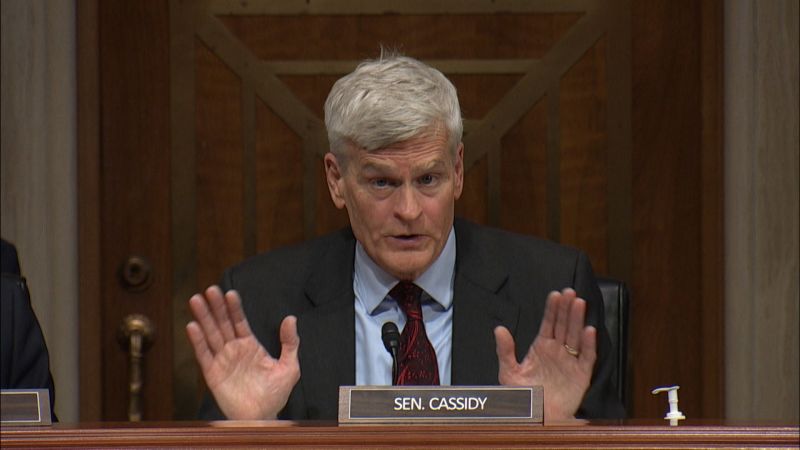GOP Leadership Tensions Rise: RFK Jr.'s Nomination Sparks Internal Conflict

Senator Bill Cassidy Raises Red Flags About RFK Jr. as Potential HHS Secretary
In a candid and pointed critique, Sen. Bill Cassidy, who leads the Senate Committee on Health, Education, Labor and Pensions, has voiced serious concerns about Robert F. Kennedy Jr.'s potential appointment as Secretary of Health and Human Services.
As the chairman of a critical Senate committee, Cassidy's reservations stem from Kennedy's controversial history of spreading medical misinformation and his long-standing anti-vaccine rhetoric. Kennedy has been a prominent figure in the anti-vaccine movement, repeatedly making claims that contradict scientific consensus and potentially undermining public health efforts.
Cassidy's apprehension reflects a broader worry within medical and political circles about Kennedy's track record. His skepticism is rooted in the potential risks such an appointment could pose to national health policy and public trust in medical institutions.
The senator's critique highlights the importance of having a health leader who relies on evidence-based science and can effectively communicate complex medical information to the American public. Kennedy's past statements and positions, which often challenge established medical research, raise significant questions about his suitability for such a critical leadership role.
As the debate continues, Cassidy's concerns underscore the delicate balance between political appointments and the need for scientifically sound leadership in crucial health positions.

